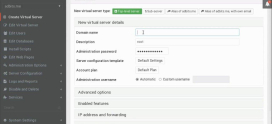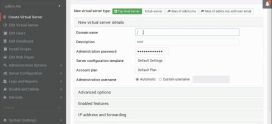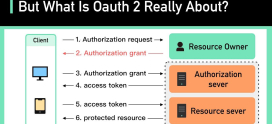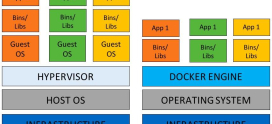DNS Monitoring: Why is it important?
The Domain Name System (DNS) is a key component of the Internet and translates URLs into IP addresses. As the Internet infrastructure becomes more complex, so does the importance of robust DNS operations. DNS monitoring has become an essential component of network monitoring solutions, given the need for high application and uptime and the rise of DNS security threats. Organizations that rely heavily on online platforms cannot overlook the efficiency and security of DNS systems. This article describes DNS monitoring and DNS server monitoring, DNS-related monitoring issues
What is DNS Monitoring?
DNS monitoring is the process of constantly checking DNS servers and records to make sure they correspond to their respective IP addresses. This includes monitoring the performance, availability and overall health of the DNS infrastructure. It can alert administrators to concerns such as excessive response times, failed DNS lookups, and DNS poisoning attacks that may signal a DNS configuration problem or an active security threat.
How does this work?
The DNS monitoring process works by sending automated queries to any DNS server and checking the results for a specific domain name. The most common use case is to query a DNS server with a URL and check the returned IP address in an A Record or AAAA Record.
The desired response for these requests is the correct IP address corresponding to the URL used. For example, when checking the URL google.com, we look for a response that includes IP 172.217.23.238.
When the correct IP is received, no further action is taken and monitoring continues. When a different one is returned, the monitor fires an event called a DNS event and starts alerting according to the call calendar.
Why is DNS Monitoring Important?
An effective DNS monitoring system is critical to the reliability of your website, as well as the security and trust of your users.
Since DNS is a popular target for hackers, it's important to keep a close eye on any malicious attacks on your domains and services. Common attacks include:
- DNS poisoning. When a hacker inserts their false information into your DNS cache, it can be used to redirect users to a fake version of your website or collect their personal information, such as credit card numbers.
- DDoS (Distributed Denial of Service) and DoS (Denial of Service) attacks. When one (DoS) or several (DDoS) computers attempt to disrupt a website or service due to excessive requests.
Without DNS monitoring, your website and its users are more vulnerable to the above attacks, which can lead to significant problems such as unplanned downtime, unhappy users whose personal information may be compromised, and ultimately lost revenue and a bad brand reputation.
DNS monitoring is essential to maintain the reliability of your servers and prevent security breaches. Just as important as the safety and security of your websites and services is the safety of your users.
What are the main advantages and disadvantages of DNS monitoring?
Benefits
- Automated with constant frequency: DNS monitoring can run every minute, every hour, 24 hours a day, 7 days a week, all year round. It is a fully automated script and once set up, requires little or no maintenance while providing the same valuable information.
- Easy to install and use: DNS monitoring can be set up in minutes while providing availability information from the start.
- Global testing: This allows testing from different endpoints around the world. This allows you to separate regional errors from events that affect all users and allows you to optimize for a global audience.
shortcomings
Limited incident reporting: DNS monitoring does not have information that can answer why any problem occurs. Because it only controls the final output, not the actual workings of the DNS settings. An application performance management (APM) or log management tool should be used to gain better insight into the root cause.
How to control DNS?
Effective DNS monitoring requires several critical activities:
- Regular check of DNS resolution: Ensuring that your domain names resolve to the correct IP addresses without unnecessary delay.
- Monitoring DNS Server Performance: Monitoring response times and availability of your DNS servers.
- Verifying DNS Records: Regularly verify that all your DNS records (such as A, AAAA, MX, and TXT records) are accurate and have not been altered.
- Setting up alerts: Configuring alerts for any anomalies or issues detected during monitoring to take immediate action.
Difficulties in DNS Monitoring
DNS Monitoring is certainly important, but it's not without its challenges. As DNS traffic has grown exponentially and the types and complexity of threats have evolved, the demands for DNS monitoring tools and methodologies have intensified. Below are some of the common problems faced by NetOps professionals in DNS monitoring:
- Scale and complexity: The sheer volume of DNS queries processed daily can be overwhelming. Managing and analyzing this large amount of real-time data requires powerful tools and methodologies.
- A diverse and evolving threat landscape: Modern cyber threats are constantly evolving, requiring monitoring tools to be adaptable and always up-to-date. Threats such as DNS tunneling, where malicious data is inserted into DNS queries, are difficult to detect without advanced analysis capabilities.
- Data Fragmentation: In larger organizations, DNS information may be scattered across different servers, regions, and networks. Combining and making sense of this information is critical to a comprehensive understanding of the DNS landscape.
- False positives and alarm fatigue: Not every anomaly is a real threat. Filtering out the noise and preventing false positives is critical. Too many irrelevant signals can lead to alarm fatigue, which causes real threats to be overlooked.
- Lack of historical context: Without a historical view of DNS data, it is difficult to discern patterns, understand anomalies, or plan for future opportunities.
The result
To summarize, DNS monitoring should be an essential part of any organization's security strategy. By detecting and preventing attacks, it helps protect an enterprise's infrastructure and online presence. In addition, DNS monitoring also improves the performance and reliability of web-based applications. So it's an important tool that companies should consider using.
Post DNS Monitoring: Why is it important? appeared first on GreenCloud – Affordable KVM and Windows VPS.









